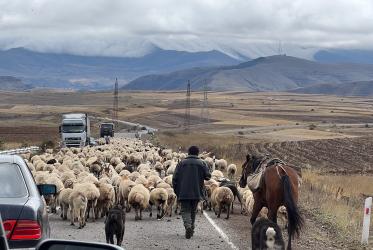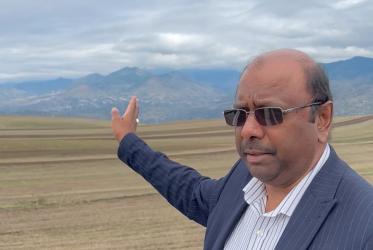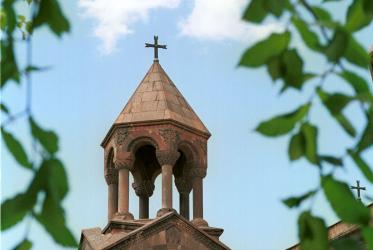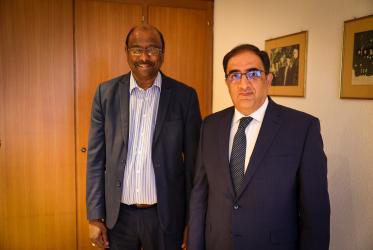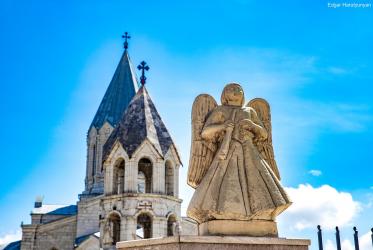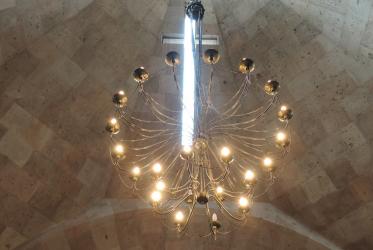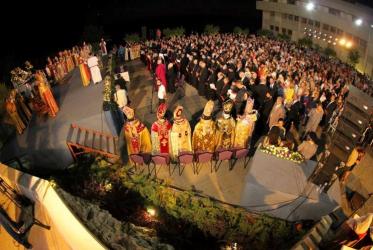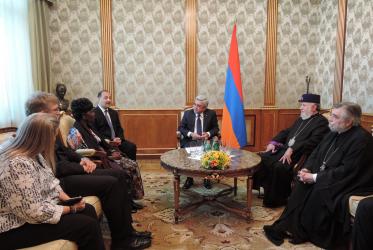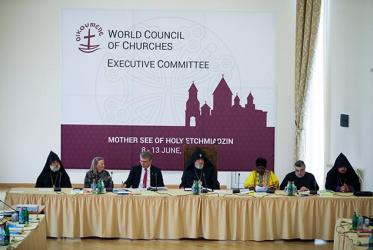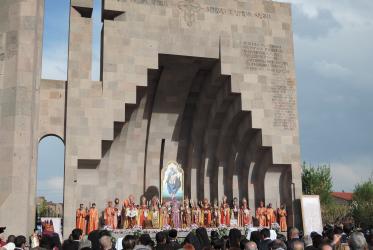Displaying 1 - 18 of 18
WCC delegation witnesses Azerbaijani forces shelling of Armenian enclave
25 September 2023
Ecumenical delegation visits Armenia
19 September 2023
WCC delegation to visit Armenia
15 September 2023
Common prayer in Geneva responds to acts of violence
16 November 2015
WCC Executive Committee speaks out on migrant crises
12 June 2015
WCC leaders meet President Serzh Sargsyan
11 June 2015

